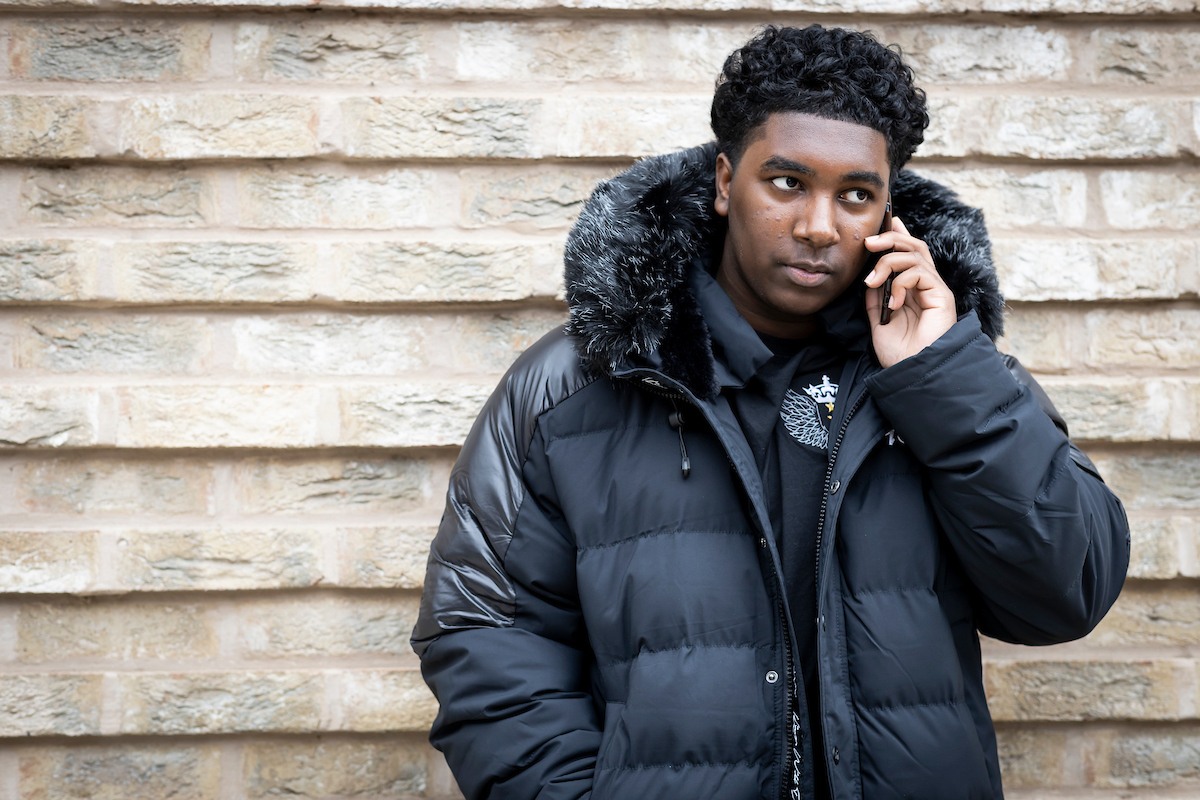Types of job interview

Job interviews aren’t really that straightforward anymore. You have to be prepared for anything. This includes multiple interviewers, tests, phone interviews, and presentations. So what are the different types of job interview like? And how do you survive them? The Mix walks you through types of interview.
Types of interview
Presentation job interviews
You could be asked to prepare a presentation before you get to the interview. Or they’ll give you the task on the day. Regardless, all you can do is breathe deeply and give it your best shot. Try to keep it simple, stick to the time limit, practise, be confident, and have a clear and concise conclusion.
“The key thing to remember is you’re presenting to human beings. They’re totally not there to catch you out,” says Saiyada Smith, Careers Advisor for The Careers Group. “They’ve all been in your shoes and had those butterfly moments. So they’ll wanna be supportive if you do too.”
Job interviews on the phone
Some jobs might want to do some phone screening before they hire you.
OK, so technically you could do this one sitting in the bath – but we wouldn’t recommend it. You’re aiming to give the best possible impression. So get dressed to impress and be in an office setting, or something equivalent, that’ll look good and make you feel super-professional. Beforehand, you can always ask friends or family to call you up and ask mock questions to practise. And don’t forget the little things either. For instance, keep your phone fully charged, and know the exact time of the call.
Zoom interviews and video interviews
A lot of the same rules apply to zoom and video interviews as to phone interviews. But you definitely can’t do this one in the bath. Make yourself look smart and find a calm space where you won’t be interrupted or distracted. Your bedroom is fine, but remember your interviewer can see your surroundings. So keep it tidy and be conscious of what else they might be able to see in the shot.
Whatever device you’re using to make the call, set it down on a stable surface and try to position it at a comfortable height. That way you won’t be at an awkward angle or struggling to look into the camera. And if the camera on your device isn’t great, try to make sure the room is well lit so that they can see you as well as possible.
As an additional tip, consider exploring the plethora of options in the live video chat top10 platforms to elevate your virtual meeting experience. Leveraging these tools can enhance the interview experience, offering a seamless and feature-rich platform for effective communication. With these considerations in mind, you’ll not only present yourself professionally but also navigate the nuances of video interviews with confidence and poise.
Read our guide to interview body language here, these can be just as useful for virtual interviews as for in-person ones.
Group interviews and tasks
This is usually one of the trickier types of interview. You’ll need to balance being a leader and a team player. “The key thing to remember is to be assertive without going full authoritarian– remember, you don’t have to lead all the discussions,” Saiyada advises. “Try your best to be inclusive. Give everyone in the group a chance to shine. This’ll demonstrate you can manage people well and have good communication skills.”
Psychometric tests
Psychometric tests are generally used early on in an interview process. Often way before you get to any of the actual types of job interview. There are two types – to assess your personality and aptitude. They’re usually done online, and they’ll be timed.
For the aptitude test, the best way to prepare is to do practice tests. Then you’ll get used to the layout and the type of question. You can do practice ones through your University Careers Service, or find some free ones online. But it’s worth bearing in mind that because of the way the tests are designed, actually studying and doing heavy revision won’t really help.
With personality questionnaires it’s important to be honest. Don’t just say what you think your employer will want to hear. You’ll end up looking inconsistent, or tripping up in the interview.
Interviews at assessment centres
If you’re applying to a graduate training scheme, you’ll probably be asked to attend an assessment centre. Graduate websites like prospects and the milkround have details of the different things you may face at graduate interviews. So you should defo check them out.
Remember, an assessment centre isn’t just an opportunity for them to check you out. You can decide whether you like them too.
Types of interview question
Thought you were just going to be asked, ‘What are you good at?’ and get sent on your merry way? Think again. Employers now use different types of interview questions to find out exactly what you’re like. Here’s an example of what to expect from the various types of job interview:
- Competency based interview questions – a.k.a the behavioural interview. They’ll ask you to give examples of your skills and experience. For these types of questions, they’re looking for you to refer to specific situations that exemplify these skills. To help, use the STAR framework: Situation, Task, Action, Result, in your answer.
- Problem solving questions – Rather than a direct question, you could be given a brain teaser. This is usually used to test your creativity, problem solving skills and reasoning.
- Stress interviews – Interviewer being ridiculously rude? Chances are, they’re actually not a horrible person; they’re just seeing how you behave under pressure. Just keep your cool, don’t be phased and stand your ground. And never, ever, be rude back.
- Panel interviews – As if one potential employer isn’t intimidating enough, a panel interview involves multiple interviewers. More specifically, around three. For this one you’ll need to make sure you talk to and make eye contact with everyone, not just the person asking questions.
- Case study interviews – These are fairly simple. The interviewer will give you a problem that might come up on the job and asked how you’d deal with it.
- Portfolio-based interviews – Mostly for creative jobs like writing or illustration. You’ll simply talk through the work in your portfolio. We’d probably say that this is one of the most personal interviews.
For more support you can check out our job interview tips here.
Next Steps
- Chat about this subject on our Discussion Boards.
By Nishika Melwani
Updated on 06-Jun-2022
No featured article










